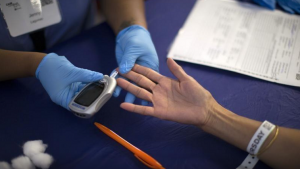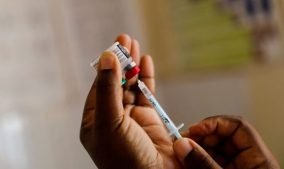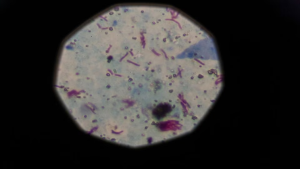World Diabetes Day is commemorated on the 14th of November across the world to highlight diabetes, its dangers and how to live with the potentially life threatening disease.
Diabetes is a disease that can affect anyone regardless of age, colour or creed. It is when ones blood glucose, or blood sugar, levels are too high. The human body gets glucose from the food it consumes. According the World Health Organization, roughly 3.85 million people in South Africa are living with diabetes.
The country is one of the 32 countries of the International Diabetes Federation.
Across the world they are over 415 million people according to WHO. Diabetes is also the second highest cause of death in SA. It has been linked to cardiovascular disease, stroke, eye disease, kidney disease, nerve damage, sexual dysfunction as well as high blood pressure and high cholesterol.
Two common types of diabetes:
Type 1 diabetes – Occurs when the pancreas stops producing insulin. It usually starts in young people under the age of 30, including very young children and infants, and the onset is sudden and dramatic. People who have type 1 diabetes must inject insulin to survive. Insulin dosages are carefully balanced with food intake and exercise programmes.
Type 2 diabetes – Is caused when the insulin, which the pancreas produces, is either not enough or does not work properly. Approximately 85 – 90% of all people with diabetes are type 2, and many people who have this condition are undiagnosed. Most people with type 2’s are over 40. They are usually overweight and do not exercise. Report: Diabetes South Africa
Symptoms of diabetes:
- Abnormal thirst.
- Recurrent urination.
- Unexplained weight loss.
- Blurred vision.
- Frequent or recurring infections.
- Fatigue or lack of energy.
- Cuts and bruises that take more than usual to heal.
- Tingling and numbness in the hands or feet.
*Many people with Type 2 diabetes show 2 diabetes may show no symptoms.
What to do when you have diabetes:
- Maintain a healthy weight which is in line with your body mass index.
- Make better eating decisions, eat a balanced meal with the right nutrients.
- Don’t skip meals as this may cause your energy levels to drop, snack in between meals.
- Exercise regularly.
- Diabetes alone claimed more than 25 000 lives in 2015, according to Statistics SA, and some 10 000 new cases are diagnosed at public health facilities every month.
The country has a growing number of obese and overweight people which is caused by unhealthy eating habits and lack of exercise.
This has prompted government to propose a sugar tax on sugar-sweetened beverages. Health Minister, Dr Aaron Motsoaledi says sugar is destroying people’s health. Diabetes alone claimed more than 25 000 lives in 2015, according to Statistics SA, and some 10 000 new cases are diagnosed at public health facilities every month. The country has a growing number of obese and overweight people which is caused by unhealthy eating habits and lack of exercise.
Many people living with diabetes take insulin injections.
Insulin allows the cells in the muscles, fat and liver to absorb glucose that is in the blood. The glucose serves as energy to these cells, or it can be converted into fat when needed. Insulin also affects other metabolic processes, such as the breakdown of fat or protein, according to the Hormone Health Network.







